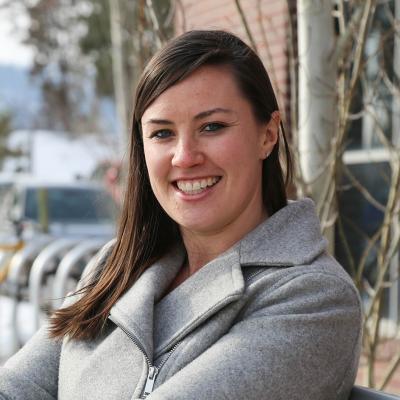
Research topic
Research Description
My research involves working with community organizations to develop, implement and evaluate programs that foster positive physical and psychosocial development. Specifically, I am working with the YMCA of Okanagan to tailor, implement, and evaluate a diabetes prevention program in the community that focuses on making lasting diet and exercise changes to lower participants' risks of developing type 2 diabetes in the future. We are in the process of scaling this program out across multiple sites in the community.
Why did you decide to pursue a postdoctoral fellowship at UBC? Did you consider other opportunities?
UBC’s School of Health and Exercise Sciences has consistently be ranked as one of world’s top sport-related departments. The opportunity to work with global leaders in the fields of health behaviour change community programming, program evaluation, and knowledge translation were paramount in my decision to pursue this fellowship at UBC. I did not consider other opportunities; I knew this was the institution that I wanted to pursue for my post-doctoral fellowship.
What specifically attracted you to your research group?
My graduate work sparked my passion for working with community organizations to develop, implement, and evaluate sport and physical activity programs in fostering physical and psychosocial development. Throughout this work, I adopted Positive Youth Development, a proactive approach to youth development that sees youth as assets to be developed within sport and physical activity programming. Building off this foundation, while also wanting to extend my research expertise into implementation processes of health programming, I learned of Dr. Mary Jung, a renowned exercise psychology researcher, who is also the founder of the Diabetes Prevention Research Group, co-PI of the UBC Okanagan Community Health Research Cluster, and Director of the Centre for Health Behaviour Change at UBC. After connecting with Dr. Jung and her Diabetes Prevention Research Group, I was even more keen to become part of this research group. Not only were the people and the lab culture truly amazing, I was passionate about adopting a preventative approach for chronic disease within adults. Specifically, the research group was running Small Steps for Big Changes, a counselling program that helps people make lasting dietary and exercise changes in order to lower their risk of developing type 2 diabetes. This opportunity would allow me to expand my horizons within my postdoctoral fellowship by using existing expertise in a new context to serve a new population. Moreover, the culture, opportunities, and resources afforded to me within this laboratory will enable me to thrive and facilitate my trajectory that aligns with my career goals to secure a tenure-track position at a research-intensive Canadian university.
What advice do you have for new postdoctoral fellows?
Two pieces of advice I would give to new post-doctoral fellows are: 1) Never under-estimate the value of making connections: take opportunities to network every chance you get within your faculty, university, community, and beyond. This includes putting yourself out there when attending conferences and events. We live in a social world; you never know when a seemingly insignificant conversation or connection can impact your life. 2) Take initiative: some of my valuable experiences have come from taking initiative and getting involved in various projects. Always look to expand your horizons and your skillset—we are in field of academia because we love learning, so always continue to do so.
What is the most enjoyable aspect of your postdoctoral fellowship?
The two most enjoyable aspects of my post-doctoral fellowship are: 1) working with community organizations to make real-world impacts on those who can benefit most and 2) mentoring graduate and undergraduate students.
What in your life or career has prepared you for this position?
My master’s and doctoral work at the University of Ottawa were paramount in preparing me for this fellowship. Through this work, not only did I establish a strong research foundation, but also learned the importance of establishing trusting community partnerships that are imperative to the program uptake and sustainability. Moreover, I also fostered self-discipline and project management skills that are imperative to my continued work applied academic work.
What does receiving this award mean for your career?
Being awarded a Killam Postdoctoral Fellowship affords me the time and resources required to pursue the research I am so passionate about that will positively impact the Okanagan community and build foundational skills necessary to advance my academic career.